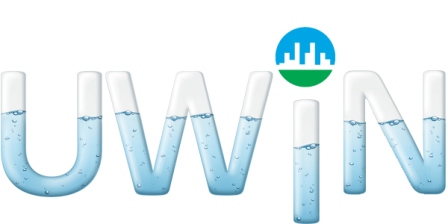Project A1-2 (CSU): Impacts of changes in climate, demographics, and urban form on water supply-demand equilibrium, economic growth, and social equity
Alex Maas, PhD
Colorado State University
Agricultural & Resource Economics
This project evaluates the total and distributional impacts of water prices and availability on water consumption, household Income, and economic development. Given the current and future pressures on urban water systems, such as aging infrastructure, growing populations, and climate change; the cost of water will continue to rise for the foreseeable future, placing economic strains on businesses, households, and communities.
The extent to which water prices and scarcity affect business decisions and economic growth is largely unknown with substantial variations from business to business. Accordingly, this project with attempt to classify businesses into groups with particular water consumption patterns and preferences.
From a Utility’s perspective, regional economic decline—particularly through emigration—necessitates increases in rates or issuing debt to cover operation costs, both of which can be difficult in an economically depressed region. Growing cities also have supply planning challenges, especially when past consumption behavior is no longer a sufficient predictor of future use.
From a household perspective, higher prices may lead to unaffordability, which excludes households from service (either throw emigration or default), thus creating a greater burden on those still paying for service or reducing utility revenue. This project will investigate “price discrimination” as a possible solution to both unaffordability and revenue concerns.
In each of these examples, the presence of negative feedbacks and non-linearity suggest the existence of a vicious cycle between many elements of water: water supply, water demand, and economic growth. Moreover, these effects are unlikely to be distributed evenly across socio-economic groups and communities. Therefore, we intend to investigate how each of these components relates to water consumers with a particular focus on members of vulnerable communities.
Lastly, this project will examine the relationship between city livability, public amenities, and private water consumption. The ultimate goal of this component is to determine if the presence and proximity of water amenities affects personal water consumption and to what degree different communities have access to these public spaces.
DATA NEEDS
Data should be provided at the household level, anonymized to block level or with a truncated address
- Indoor water use
- Outdoor water use
- If a rebate was given
- Pricing structure
- Timing and location of restrictions or other demand policies
- Other billing charges (fixed charges like storm and waste water)
DATA USE
This data will be used to look at household level behavior and demand.
This project will work in tandem with IUWM (Project B1-1) to provide not only supply and demand forecasts for urban regions, but also identify the welfare impacts of particular policies and programs on communities and groups of interest.
Additionally, we will evaluate aspects of water demand that are poorly understood, for example, the existence and location of a weather or price threshold beyond which the structural equations of demand are fundamentally altered. Another phenomenon of interest is the substitutability of public amenities like parks and water features with private water consumption.
Journal Papers
- Maas A., Goemans C., Manning D., Kroll S., Arabi M., Rodriguez-McGoffin M., Evaluating the effect of conservation motivations on residential water demand. Journal of Environmental Management, March 2017. https://doi.org/10.1016/j.jenvman.2017.03.008
Related Materials
- UWIN A1-2 (CSU) Project Overview
- UWIN B1-1 CSU Project Overview
- Integrated Urban Water Model User Guide
 Elizabeth Mack, PhD – Principal Investigator
Elizabeth Mack, PhD – Principal Investigator
Assistant Professor
Geography
Michigan State University
Voice: (517) 432-7058
Email: emack@msu.edu
Elizabeth Mack is an Assistant Professor in the Department of Geography at Michigan State University where she teaches courses in economic geography. She is also a research affiliate of the GeoDa Center for Geospatial Analysis and Computation. Dr. Mack’s research program evaluates the impact of information and communications technologies (ICTs) on the development trajectory of regional economies. This research program includes broadband infrastructure deployment policy issues as well as the impacts of broadband on business location. Recently, Dr. Mack’s work is focused on understanding entrepreneurial ecosystems and the enabling role of broadband Internet connections in the new venture creation process
Alex Maas, PhD Candidate – Research Scientist
Colorado State University
Agricultural & Resource Economics
Email: alexander.maas@colostate.edu
